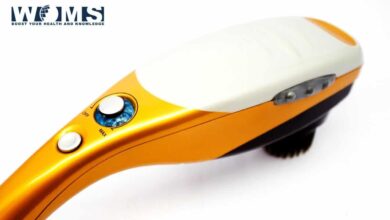How to Prepare for a Hospital Visit When You Have Hearing Loss

According to a study by Johns Hopkins University, Americans with untreated hearing loss have a 17% higher risk of an emergency room visit with a higher likelihood of requiring a hospital stay and needing readmission within a month.
Some hospitals do have measures in place to help hearing-impaired patients.
- On-staff interpreters
- Amplifiers
- Transcription tools
- Clear masks
Unfortunately, many of them fall short in that regard. If there are interpreters at all, they’re either too overworked to tend to every hearing-impaired patient or aren’t trained in the necessary sign language dialect to translate. And as far as amplifiers and transcription tools, these frequently end up being outdated, cumbersome legacy technology.
You’d think hospitals would be more accessible to people with hearing loss — but whether due to budget constraints, staffing shortages, or simple oversight, they aren’t. You cannot reasonably assume that you’ll receive the support you need for your condition if you require a hospital stay. Your best bet is to prepare well in advance.
The first step is to build a hospital kit. The Living With Hearing Loss Blog has published an excellent guide on what that kit should include, courtesy of the Canadian Hard of Hearing Association. In broad strokes, the kit consists of the following.
A Checklist of in-Hospital Necessities
Before you arrive at the hospital, you (or a loved one if you aren’t lucid) will want to request any accommodations the hospital may have for the hearing impaired. This may include an amplified phone, closed captioning in your room, and so on. As we’ve already mentioned, hospitals tend to be hit and miss with such accommodations, so while you should always request them, you cannot always expect that they will be provided to you.
Visual Reminders
Hearing impairment is invisible. You can look at someone with muscular dystrophy and know that they have a disease. You can look at someone with their arm in a cast and know that they have a broken bone.
You cannot discern that someone is hearing impaired simply by looking at them. As such, you’ll want to ensure you have plenty of visuals on your person that informs care providers of your hearing loss. These include signs, stickers, badges, and pins.
A Communication Tip Sheet
Especially now, doctors and nurses are running on fumes. It’s not reasonable to expect them to know all of your needs immediately, nor will you likely have the wherewithal to explain to them. A small tip sheet or brochure is invaluable in this regard, as it allows you to transition between caregivers seamlessly and ensures everyone is kept in the loop about your needs.
This sheet should include a bulleted list of your unique communication needs, including writing down important information, speaking clearly, and asking you to repeat essential facts.
Hearing Loss Essentials
This includes everything you might personally need for your hospital visit. If you have a hearing aid, a spare charger or spare batteries is a must. Similarly, you’ll want to make sure you have a charger for your smartphone, an extension cord, backup devices, and any other communication aids you can think of.
Hospital visits can be immensely stressful if you’re struggling with hearing loss. Prepare for your trip in advance. That way, you can take at least a bit of the stress off.




